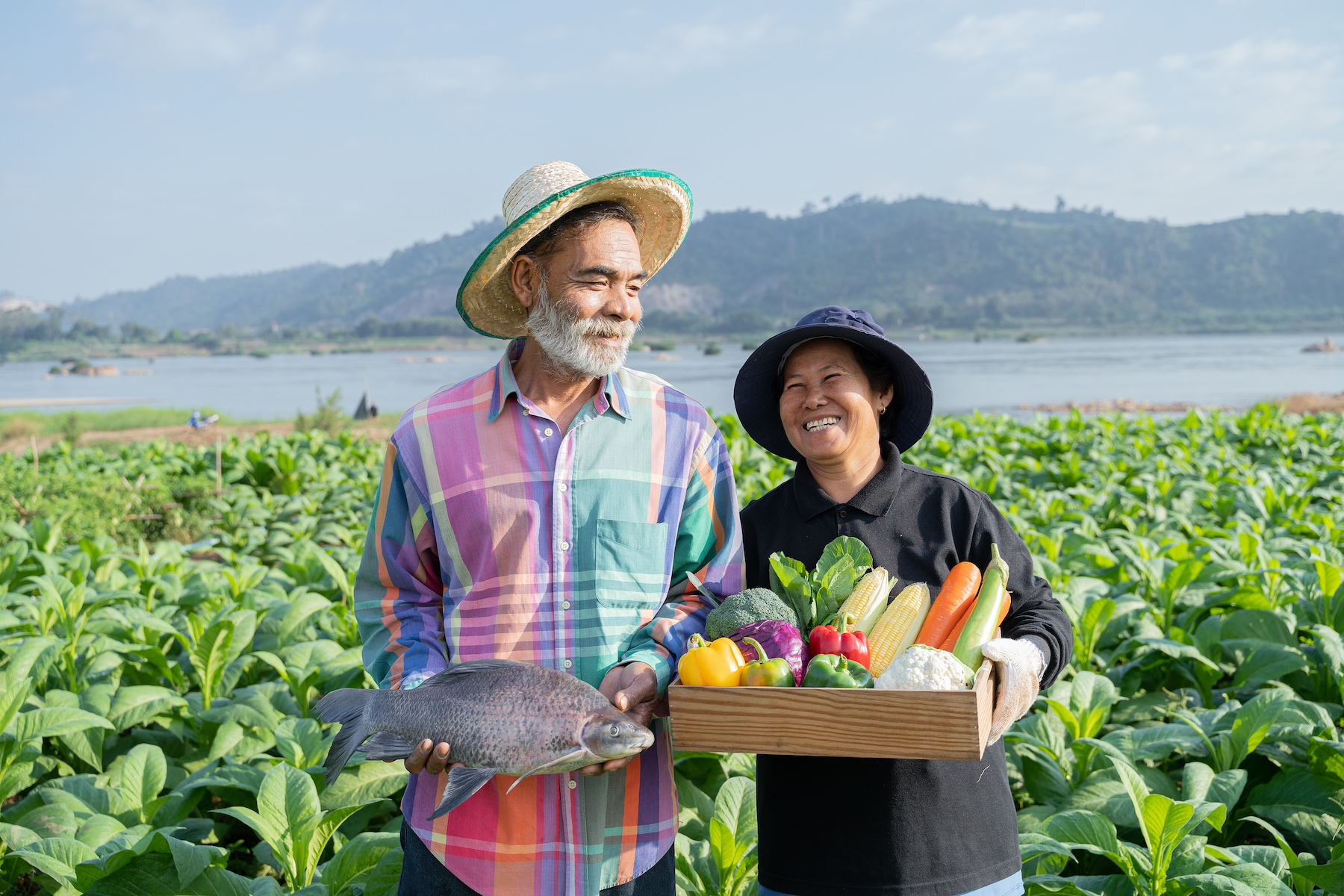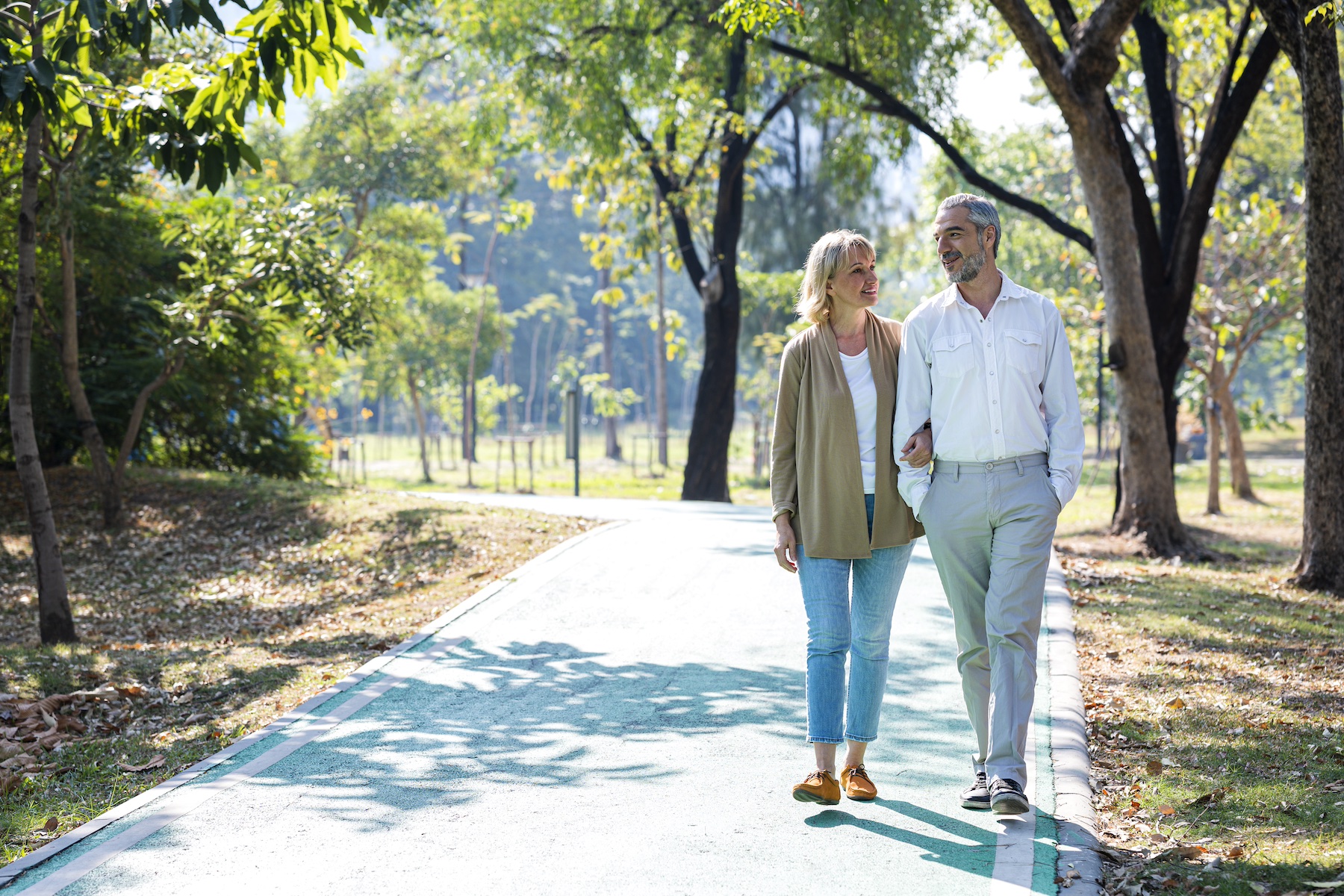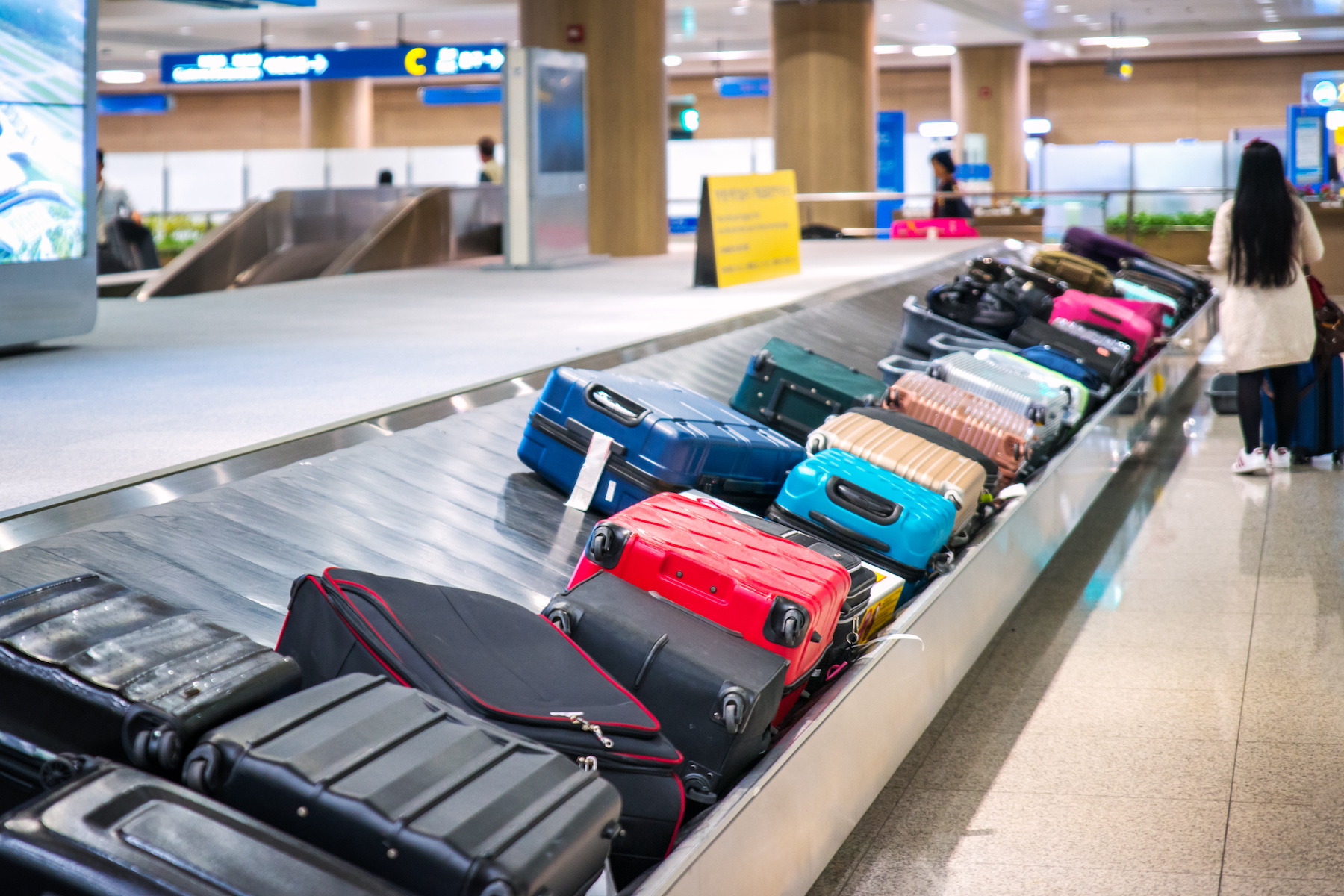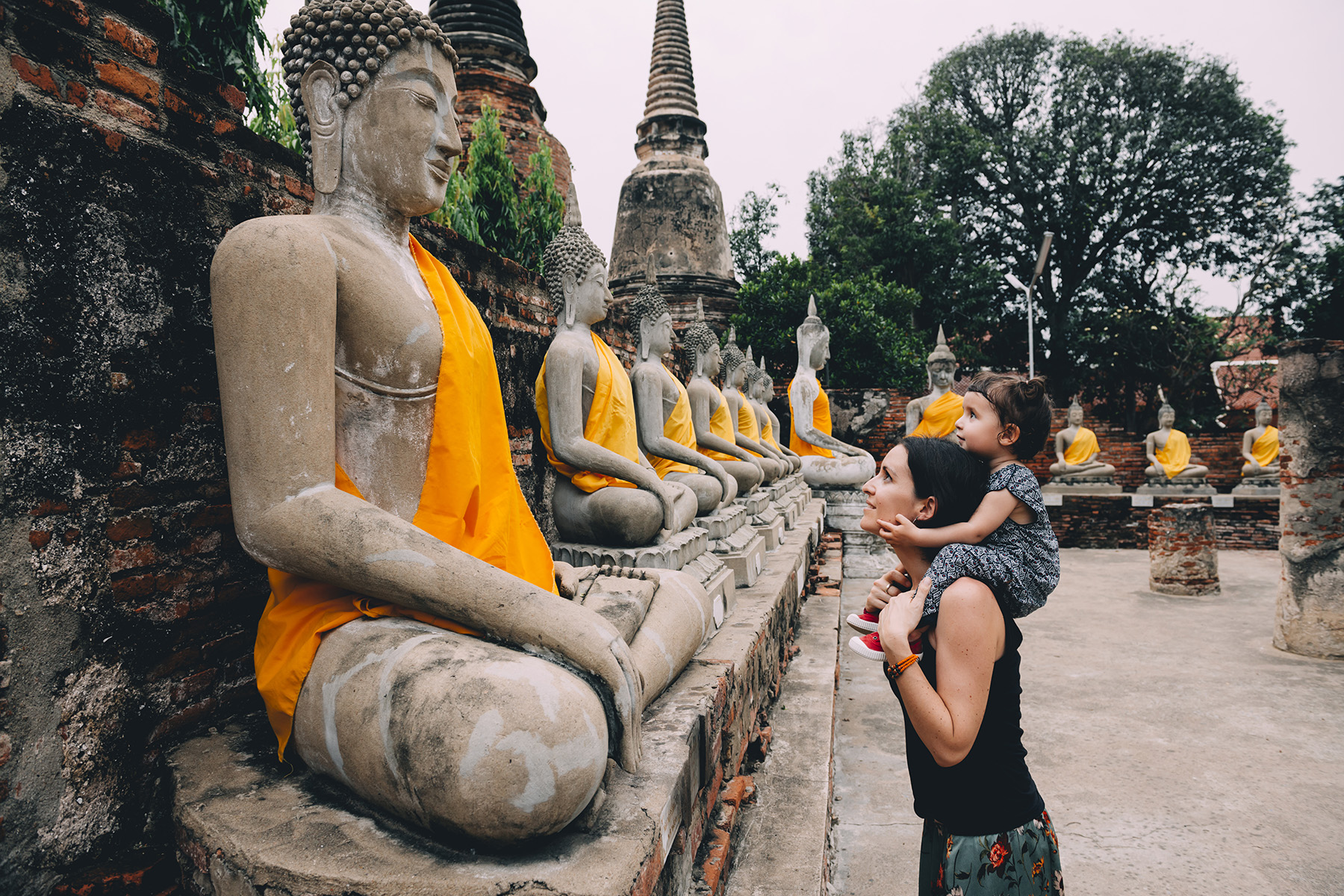Thailand is an alluring destination that attracts tourists, expats, digital nomads, and retirees with its majestic temples, pristine beaches, and relaxed way of life. It offers plenty of visa-free and short-stay options for those who want to visit, as well as long-stay permits for those who want to live in Thailand.
There are many different visa and immigration options, depending on what country you’re from and your purpose in Thailand, so it’s important to do your research.
Keep reading for more on the following topics:
- Immigration in Thailand
- Who needs a Thai visa?
- Types of Thai visas
- Short-stay Thai visas
- Long-stay/Non-Immigrant visas for Thailand
- Long-term resident (LTR)/immigrant visas for Thailand
- Visas for digital nomads and remote workers
- Asylum and refugees in Thailand
- Residence and citizenship in Thailand
- Arriving in Thailand
- Useful resources
Immigration in Thailand
The United Nations (UN) estimates that between 4 and 5 million foreigners live in Thailand, making up a significant proportion of the population. The country’s strategic location within Southeast Asia makes it accessible and allows for much cross-border travel within the region.

However, the UN also suggests that as much as half of Thailand’s foreign residents may hold irregular immigration status due to high fees, long waiting times, and complicated processes.
Much like other nations globally, Thailand uses a structured immigration system. This means that citizens from certain countries benefit from relaxed entry requirements while others are more strictly regulated. Thailand has even introduced special visa programs aimed at allowing wealthy workers, investors, and retirees to immigrate to the country.
The Ministry of Foreign Affairs (กระทรวงการต่างประเทศ) oversees visas and immigration in Thailand, facilitating the application and renewal processes and ensuring compliance with Thai law.
Who needs a Thai visa?
Thailand has different visa rules in place depending on your nationality. The Thai e-visa website can tell you whether you need a tourist visa if you can apply online, and even which type of visa you need based on your personal information.
Here are some of the rules for different nationalities:
- Visitors from the USA, Canada, Australia, New Zealand, Japan, Malaysia, Singapore, and South Africa can enter Thailand and stay for 30 days without a visa
- Visitors from Brazil, Argentina, Chile, South Korea, and Peru can stay for 90 days
- Visitors from Hong Kong, Macau, Laos, Mongolia, Russia, and Vietnam can stay for 30 days
- Visitors from Cambodia can stay for 14 days if entering at any international port, and visitors from Myanmar can stay for 14 days if entering at an international airport
- Visitors from 17 countries, including China, India, and Mexico, can apply for a 15-day visa on arrival
Citizens of EU/EFTA nations can stay in Thailand for 30 days without a visa. To stay up to 60 days, you will need a tourist visa. To stay longer, you will need to obtain a long-term visa.
For a full list of visa requirements by country, consult your local Thai embassy or check out this helpful table from the Ministry of Foreign Affairs.
Types of Thai visas
There are many options for people who wish to stay in Thailand for an extended period of time.
- Short-stay visas – these visas permit stays of up to 90 days for purposes such as tourism or short-term business
- Long-stay/Non-Immigrant visas – longer-term temporary visas exist for studying or working on fixed-term contracts, where the holder only needs to be in the country for a set period
- Resident/Immigrant visas – residential visas allow foreigners to live in Thailand either very long-term or permanently

Full details of the different Thai visas available, including their qualifying conditions, costs, and application processes, are explained below.
Short-stay Thai visas
Short-stay visas usually allow you to remain in Thailand for 30 to 60 days and do not grant permission to work or study in the country.
Tourist visa
With a tourist visa, you can go to Thailand to sightsee, visit family living there, or attend an event supported by the Thailand Convention and Exhibition Bureau (TCEB). Thai authorities usually need the following for a tourist visa, depending on your country of origin:
- The biodata page of your passport
- A photograph no more than six months old
- Confirmation of your flight and other bookings
- Proof of accommodation in Thailand, whether staying in a hotel or with friends and family
- Proof that you have finances to support your trip (฿20,000 for one person and ฿60,000 for a family)
- Documentation of your current residency
Medical visa
Thailand has long been a popular location for medical tourism. As early as 2013, Thailand attracted 2.5 million people seeking care and was the most popular destination for medical tourism.
A tourist visa is appropriate for medical treatment lasting less than 60 days. However, if you need to be in Thailand for longer, you should consider applying for a Non-Immigrant O visa detailed in the long-stay visas section.
Transit visa
Transit visas are granted in particular circumstances and only last 30 days. You might be eligible for a transit visa if you work for an airline or cruise ship, play on a sports team with a match in Thailand, or must pass through the country to reach your final destination.
Long-stay/Non-Immigrant visas for Thailand
Thailand offers long-stay visas to those who have business in the country for an extended period, such as to work or study but are not immigrating there.
Student/Non-Immigrant ED visa
If you want to study in Thailand at any level and for any type of course, you need a student visa. In general, these visas are granted for a three-month period, but you can get up to a year approved depending on the length of your studies.

Required documents for a student visa are similar across the board, usually including the following:
- A passport and photograph less than six months old
- An authorized letter confirming school enrollment details
- The school or university’s registration certificate
- For primary or secondary school students, a letter from the Ministry of Education
- For university students, a diploma or grade transcript from the previous institution
Business/Non-Immigrant B visa
You’ll need a Non-Immigrant B visa to work for an extended period in Thailand. These are usually granted for 90 days, but getting a one-year visa is possible if you qualify. You must have an offer from a registered business confirming that you have been invited to work in Thailand and a work permit from the Thai Ministry of Labour. This type of visa is also appropriate for non-school-related internships.
Businesspeople who work in science and technology fields may also want to look into Thailand’s Smart Visa program instead.
Investor/Non-Immigrant IB visa
The Non-Immigrant IB visa is better suited for investors coming to Thailand to invest in or work with a Board of Investment (BOI) company. The IB visa lets investors stay for up to 90 days. Rather than a letter from the Ministry of Labour, investors should submit a letter of approval from the BOI.
Investors who wish to stay in Thailand longer may also want to look into the newer Smart Visa program.
Visiting family/Non-Immigrant O visa
If you want to go to Thailand to visit family for an extended period of time, you can apply for a Non-Immigrant O visa. In this case, you need the following documents:
- A passport and photograph less than six months old
- Proof of sufficient funds to cover your stay in Thailand
- Proof that you are related to someone who lives in Thailand
The Non-Immigrant O visa also covers a few more specific cases, like those who wish to work unpaid for an NGO in Thailand or who need more than 60 days of medical treatment.
Non-Immigrant O-X and O-A visa
Thailand’s Non-Immigrant O-X and O-A visas are only available if you’re over age 50, and which one you qualify for depends on your country of origin.
The O-A is more limited than the O-X visa. It lasts for a single year, but it can be extended continuously. People with an O-A visa cannot work in Thailand.
Applicants should have at least ฿800,000 in their bank account or earn over ฿65,000 per month. Those with an O-A visa must possess health insurance through a qualifying company that covers at least $100,000 for treatment in Thailand.

While Non-Immigrant O-X visas have greater benefits, they are only available to foreigners from 14 countries: Japan, Australia, Denmark, Finland, France, Germany, Italy, the Netherlands, Norway, Sweden, Switzerland, the UK, Canada, and the US.
O-X visa holders can stay in Thailand for five years at a time with the option to extend for five more years. If you have this type of visa, you can also work as a volunteer, purchase a condominium, and buy a car.
Smart Visa for specific industries
The Smart Visa program allows those working in cutting-edge science and technology industries to live in Thailand for up to four years. This program has four types of visas, one each for highly skilled professionals, investors, executives, and entrepreneurs in the science and technology fields, as well as their spouses and children.
Requirements vary depending on which type of Smart Visa you’re going for, but generally, extensive experience in your field and a high salary or level of investment are mandatory. You can apply online through the dedicated Smart Visa website and review the required documents for each type.
The processing fee is ฿10,000 whether you collect your Smart Visa in Thailand or abroad.
Long-term resident (LTR)/immigrant visas for Thailand
One of Thailand’s newest and most exclusive immigration programs is the long-term resident (LTR) visa. This visa offers a 5-year renewable residency in the country and a list of prestigious perks like travel services and tax exemptions. LTRs also automatically receive work and multiple re-entry permits for Thailand.
The LTR visa is available to four categories of individuals and their spouses and dependents. The application process is the same for all four categories, and each requires that the applicant have US$50,000 in international health insurance or social security benefits applicable to Thailand.
Other than health insurance, the requirements for each category vary greatly, so read the following sections for more information. Processing fees depend on whether you collect your visa in Thailand or abroad, but you can expect to pay at least ฿50,000 per person.
Wealthy global citizens
Wealthy global citizens make up 6.1% of all LTR applications, with 351 submitted as of November 2023.

This particular category of LTR visa is open to those who meet the following criteria:
- Own assets worth US$1 million or more
- Have an annual income of US$80,000 for the last two years
- Invested at least US$500,000 in Thai government bonds, properties, or foreign direct investment
Note that it is required to have all four of the criteria above to be eligible for the wealthy citizen LTR application. If you’re unsure, it may be worth speaking with a financial advisor or immigration expert before applying.
Wealthy pensioners
Wealthy pensioners comprise 28.9% of all LTR applications, with 1,672 submitted as of November 2023.
According to the LTR visa qualifications, wealthy pensioners must be at least 50 years old and have an active annual pension or stable passive income. Your yearly income must be at least US$80,000 or US$40,000 if you invest US$250,000 in Thai government bonds, properties, or foreign direct investment.
For this category specifically, earned income or salary from employment does not count toward the annual income requirement. The Thai government defines passive income as unearned income. This includes sources such as a pension, rental income from properties, capital gains from investments, and stock dividends.
Work-from-Thailand professionals
Work-from-Thailand professionals make up 24.3% of all LTR applications, with 1,402 submitted as of November 2023.
To qualify as a work-from-Thailand professional, you need to be employed and working remotely for a well-established overseas company. You’re also required to have the following:
- An annual income of at least US$80,000, or US$40,000 plus a Master’s degree or above, ownership of intellectual property, or Series A funding
- Employment at a public company on a stock exchange or a private company with combined revenue over the last three years of at least US$150 million
- Five years’ experience in your current field within the last 10 years
Highly-skilled professionals
Highly-skilled professionals make up 16.7% of all LTR applications, with 1,018 submitted as of November 2023.
To qualify as a highly-skilled professional for the purposes of an LTR visa, you must work in a specific field of business. This is either a targeted industry, a higher education or research institution, a specialized training institution, or a Thai government agency. These are other qualifications:
- Have an annual income of at least US$80,000, or US$40,000 plus a Master’s degree or above in science and technology or relevant expertise (not required if you work for a Thai government agency)
- Have at least five years of work experience or a PhD in the relevant targeted industry (not required for employees of Thai government agencies)
Spouses and dependents of LTR visa holders
Spouses and dependents make up 23.1% of all LTR applications, with 1,335 submitted as of November 2023.

As long as you are the legal spouse or dependent of an LTR visa holder, you should qualify to submit an application. However, there are a few restrictions:
- Children of LTR visa holders only qualify up to age 20
- Thailand does not currently recognize same-sex marriage or partnerships, although this is expected to change by the end of 2024
- Each LTR visa holder can have a maximum of four dependents in total
Visas for digital nomads and remote workers
Thailand offers a variety of options catering to digital nomads who are known to travel around and work remotely from various destinations. Exciting destinations such as Bangkok, Chiang Mai, Krabi, Koh Samui, and Phuket are popular choices where many digital nomads enjoy spending their time.
As far as immigration is concerned, many digital nomads find tourist visas sufficient since they move around so much. Otherwise, high-earning remote workers may qualify as work-from-Thailand professionals under the LTR visa program, and nomads over 50 might consider applying for a Non-Immigrant O-X or O-A visa.
Asylum and refugees in Thailand
According to the United Nations High Commissioner for Refugees (UNHCR), there are over 90,000 refugees from Myanmar in camps along the border and 5,000 urban asylum seekers from 40 countries living in Thailand as of 2023. However, Human Rights Watch reported in late 2023 that the Thai government has been pushing back additional refugees from Myanmar since 2021.
Thailand does not have an asylum program in place for the protection of refugees, which can make it unsafe for displaced persons to live in the country. If you are seeking asylum in Thailand, you may want to go through UNHCR rather than the Thai immigration agency. UNHCR is the only organization working in Thailand to protect refugees and can provide more advice on your situation.
Residence and citizenship in Thailand
Becoming a citizen of Thailand has many benefits, such as the ability to own a car, property, and majority shares in a Thai company. You can stay in Thailand as long as you wish without having to leave the country or report to immigration.

There are multiple ways to obtain Thai citizenship, including being born to or adopted by a Thai citizen through marriage or naturalization.
The process of naturalization is quite intensive in Thailand, with the following requirements:
- Being of legal age to naturalize in Thailand and your home country
- Having a valid resident permit
- Continuous residence in Thailand for at least five years
- Having a work permit and monthly income of ฿80,000 (reduced to ฿40,000 if you graduated from a Thai university or are a parent or married to a Thai citizen)
- Having paid personal income tax for at least 3 years
- Not having a criminal record
- Sufficient knowledge of the Thai language (able to sing the national and royal anthems)
Arriving in Thailand
When you arrive in Thailand, you should have your passport and documents ready to present to immigration officers. Depending on where you arrive, you can take a subway, bus, taxi, song teaw (สองแถว, which literally translates to “two lines” because of the two rows of seats), or other mode of transportation to your accommodation.
In Bangkok, you can take the Bangkok Airport Rail Link from the Suvarnabhumi Airport to Phaya Thai (BTS) station and transfer to Makkasan Station (MRT Phetchaburi). Bangkok has multiple train lines operated by different companies, and you will have to buy a new ticket to change from the BTS to the MRT. The Rail Link fare ranges from ฿15 to ฿45 depending on the distance.

People who arrive in Thailand must complete a TM30 registration within 24 hours. For short-term stays, the hotel or guesthouse operator will process the necessary paperwork. If you live in a monthly apartment, your landlord will process the paperwork. You can remind your landlord and ask for them to provide you with the documents.
Additionally, both short- and long-term residents of Thailand must add their names to the tabien baan (ทะเบียนบ้าน) or yellow house book registered with the place they live. This is an official government-issued book that lists all the foreigners who live at a registered Thai address. You will need proof of your tabien baan should you want to apply for Thai citizenship or permanent residency in the future.
If you’re going to be staying in Thailand for an extended period of time, your first steps after arrival might be to open a bank account, sort out housing, get a Thai mobile phone or SIM card, or start making friends.
Useful resources
- Thai E-Visa Official Website – check what kind of Thai visa you need, how to apply, and more online
- Ministry of Foreign Affairs, Kingdom of Thailand – main website of the government agency that regulates immigration
- Thai Tourism Authority – information on planning a trip to Thailand for tourism purposes








